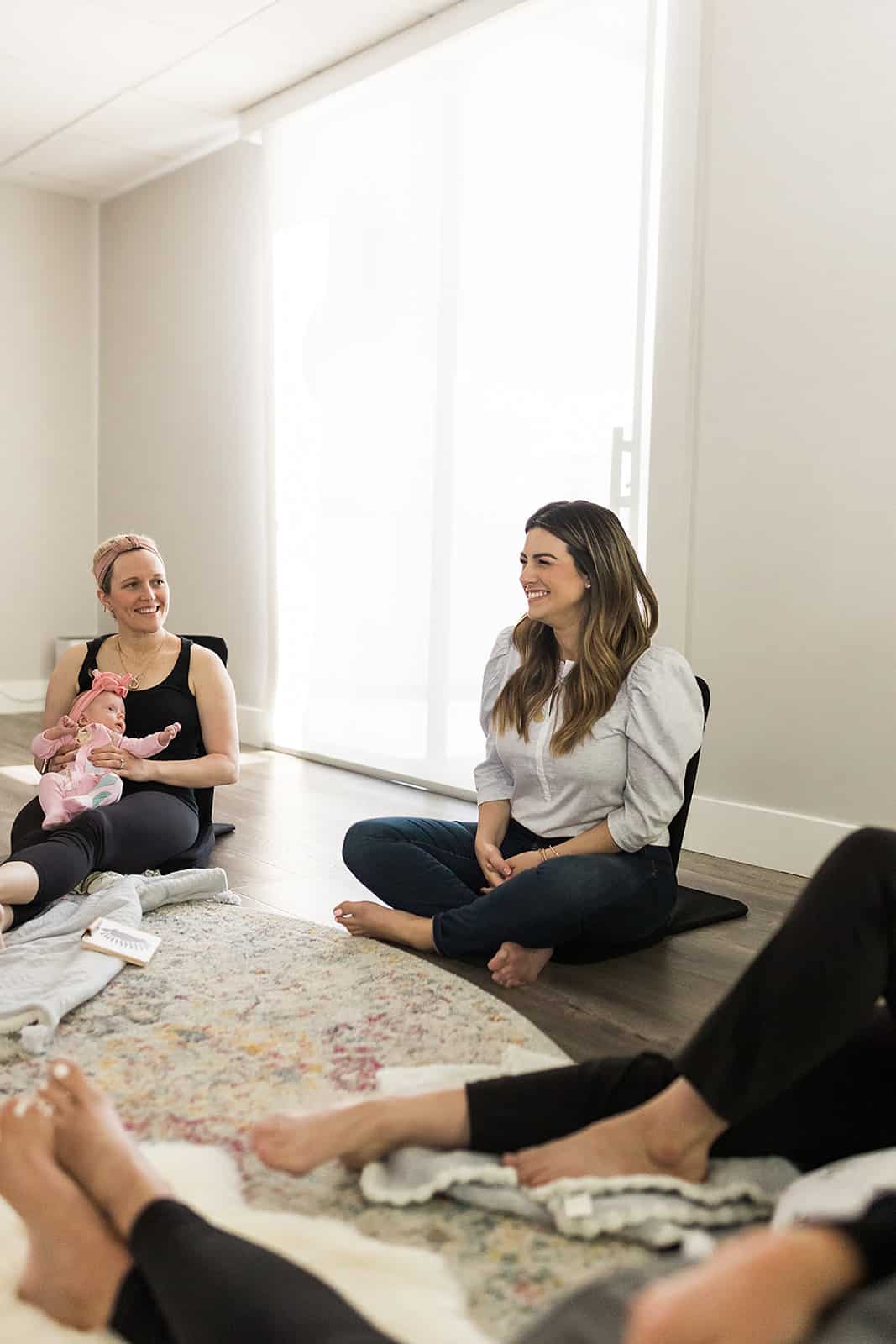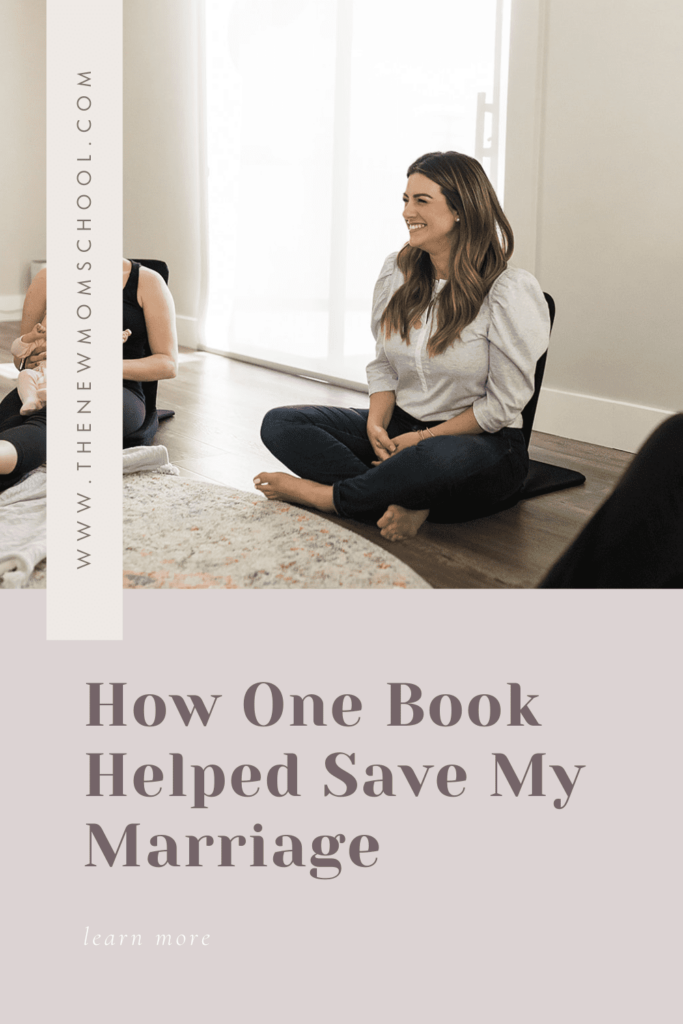When I was pregnant, I thought a lot about what having a baby would do to my marriage. I wasn’t someone who romanticized the idea of parenthood and I mourned the imminent loss of my existing relationship with my husband. I was also privy to the depressing statistic that 2/3 of couples see their marital satisfaction plummet after having a baby. There would be days I would cry just thinking about how much our marriage would be impacted. I would then be plagued with guilt for feeling that way because it made it seem like I wasn’t excited to be a mom – which of course, was not the case – so my husband and I made it a priority to talk (at great lengths) about what adding a child to our lives would do to our relationship and express our fears of what was to come. Even with a new sense of “hell yeah, we can do this and it’s going to be awesome,” nothing could have truly prepared us for what was to come.
Our daughter was born on Thanksgiving Day, which means she entered the world in the middle of the holiday season. While there are a lot of positives to that time of year, it can also be a tad crazy if you’re tending to a newborn, while simultaneously Christmas shopping for your entire extended family and hosting in laws. WHO AM I KIDDING. It was not a tad crazy – it was pure chaos. And chaos does not always bode well for your relationship (especially when it’s mixed with postpartum hormones). Resentment grew, on my end, as soon as my husband went back to work. I was envious that he got to leave the house and baby-related stresses for hours every day, go out to lunch with coworker friends, and basically do anything he wanted, while I spent those same hours being used as a human cafeteria and hotel. Pile on the sleep deprivation, and it was a recipe for emotional disaster.
The book my husband gifted me touches on the effects of sleep deprivation on the brain and how your prefrontal cortex (aka your rational side) essentially breaks down when you don’t get enough sleep, while your amygdala (aka your emotional side) kicks into high gear. It’s no wonder you find yourself snapping at your partner or losing your temper quicker than you usually would. I’ve been asked countless times how I deal with only getting 4-5 hours of sleep at night versus my normal 7-8, and I always respond, “oh, it’s so weird; your body just totally adjusts, and you don’t even need that extra sleep anymore!” This is a fallacy. Our bodies’ needs do not change – it is our mind that fools us into thinking they do. The author interviews the Director of UC Berkeley’s Sleep and Neuroimaging Laboratory and he compares the rationale I gave to that of stubborn drunk drivers. To quote an excerpt, “After five drinks, they may think they’re fine to drive home, but they’re markedly impaired in their brain function…the same is true of sleep: when people regularly get less than seven hours, we can measure significant cognitive impairment.” Basically, some of us are walking mombies (mom/zombies), and it not only impacts our own mental health, but the health of our relationships as well.
I noticed this becoming a potentially catastrophic issue approximately one month postpartum (coincidentally, the same time my husband gifted me this book). The initial haze of newborn life was starting to dissipate, but my lack of sleep was really starting to take a toll. The “ah-ha” moment for me was when I was out at my weekly rendezvous at Target when I heard a mom and dad doing the age-old, passive-aggressive, act of talking to each other through their baby. You know how it goes: you say what’s truly on your mind except you change the tone of your voice as if you’re talking to your baby and you say something like, “well, if your daddy would help out around the house more, maybe mommy wouldn’t be so tired at the end of the day and he would get to see her in the little negligee that mannequin is wearing.” I can’t remember exactly what the couple was low-key arguing about, but it made me realize that I was very close to emulating them, and my up-until-that-point approach to conflict was not effective. My approach, by the way, was to internalize, so that’s no better than the passive-aggressive baby talk. My utterly enlightening resolution? Speak up. I needed to not assume he was a mind reader and tell him, very clearly, that I needed more sleep and he had to start waking up with the baby more.
The book addresses this form of conflict and solidifies my assumptions with the following quote from a confused husband: “If my wife is fuming that I stand there while she empties the dishwasher, why doesn’t she just say, ‘help me empty the dishwasher’ instead of banging pots and pans around?” When I read that excerpt, I LOL’d. I have been in that position more times than I can count. According to communication scholar Julia T. Wood, men are more direct in speech than women within the context of relationships and “some men may assume that if a female partner has a grievance, she will state it forthrightly.” New York psychotherapist Jean Fitzpatrick adds that she often sees women thinking their men are going to automatically pitch in and contribute, and if they don’t, then they’re deliberately choosing not to pitch in – aka they don’t care. For example, when my husband says something like “we have nothing to eat for breakfast,” I often take that as him blaming me for not having any groceries and immediately get defensive, when, in reality, he is just stating a fact and perhaps frustrated he forgot to stop and pick up the essentials before we ran out.
Moral of every example mentioned above? Communication is key. This, of course, applies to life without children, but magnifies exponentially once you add a tiny human into the mix. I still, occasionally, struggle with internalizing my feelings, but find that the quality of my relationship, my mental health, and my mommy-ing improve ten-fold when I’m able to be open and honest about my needs with my husband.
Being a mom is tough business. In my post about “the working mom,” I mentioned how we, as mothers, are the ones who are depleted at the end of every day, because moms carry the heaviest load on their shoulders. To further justify the sentiment that women are badass, a reference in the book says, “working mothers are now the top earners in a record 40 percent of families with kids – yet a University of Maryland Study found that married mothers are still doing nearly three and a half times as much housework as married fathers.” On top of that, book quotes a US government’s American Time Survey and found that, “even when men didn’t have jobs, they still did half the amount of housework and childcare that women did.” Yes, your perception that you are doing more in your household is likely accurate. And I’m here to say that if you want that to change, you’re going to have to speak up. Relationships are all about perceived reciprocity, and while housework and childcare may not be split 50/50 one hundred percent of the time, each partner should feel like they’re valued, heard, and understood; which all comes back to open lines of communication. I recommend taking a peek at How Not to Hate Your Husband After Kids (or maybe download it on Audible, if you don’t feel like straining your eyes at the end of the day or adding to your pile of bedside things), because it’s a well written, entertaining read, with a lot of humor and sass by a fellow-mama who is just trying her best – something, I think, we can all relate to.
To NOT hating your husband after kids,
Melanie


